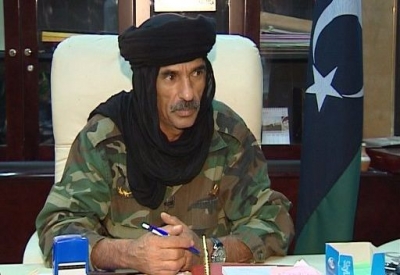By Sami Zaptia.

London, 26 June 2016:
Sahary bank announced that it will be reopening its branches and commencing business as usual as of today. The news comes in the wake of its announcement on Thursday that it was closing down all 48 branches for business until further notice.
The shut-down was due to the fact that one of its employees assigned to a committee to investigate the robbery of LD 7 million from the safe of its Sebha branch. Libyan media had reported that the kidnapping was carried out by the Bab Tajura militia.
There is no independent confirmation of the involvement of the Bab Tajura militia in the kidnapping of the Sahary bank employee.
However, it must be pointed out that the same militia led by Alazhari was accused by Abdelgader Alsaity, Deputy head of Libya’s Civil Registry Authority (CRA) on 31st March this year of kidnapping five CRA employees from their workplace at Libya Telecom and Technology (LTT), Libya’s main state ISP.
The five employees include an Indian and an Egyptian who are still missing despite the fact that the conflicting Libyan sides seem to have resolved their CRA split. The aim of the kidnappers was to take over control of the CRA, Alsaity had claimed.
He further accused the militia of taking the kidnapped technicians to the Salvation government intelligence headquarters led by Mustafa Noah.
It is not clear why the militias had suddenly decided to release the bank employee. The bank gave no further details on the intricacies of their employee’s release. It did not reveal if a ransom had been paid. Most of those kidnapped in Libya during this post 2011 period of insecurity have only been released upon the payment of a substantial ransom.
The kidnapping incident is a testimony to the weak central authorities and insecurity in Libya in general to varying degree and particularly in the capital Tripoli which is a melting pot of the polarized politics of the country as a whole.
The continued, by Libyan standards, high rate of kidnappings reflect the continued absence of an effective police force and judiciary. They also reflect the weakness of the Faiez Serraj-led Presidency Council and its Government of National Accord which is still holed-up in the Bu Sitta Naval Base, too insecure to venture out and establish itself at the traditional Prime Minister’s Office in Sikka street.
The kidnappings also reflect the continued dominance of Libya’s militias in the country and capital at the direct expense of the formation of a tribal/regional-free army directly loyal and accountable to the government of the day.
The fear of kidnappings has also contributed to the cash shortage at Libya’s banks as those with liquidity prefer to hoard their cash at home in fear of alerting potential kidnappers of their wealth. It is widely believed in Tripoli that some bank employees have been complicit in tipping off militias by supplying them with the names of bank clients with high deposits.







